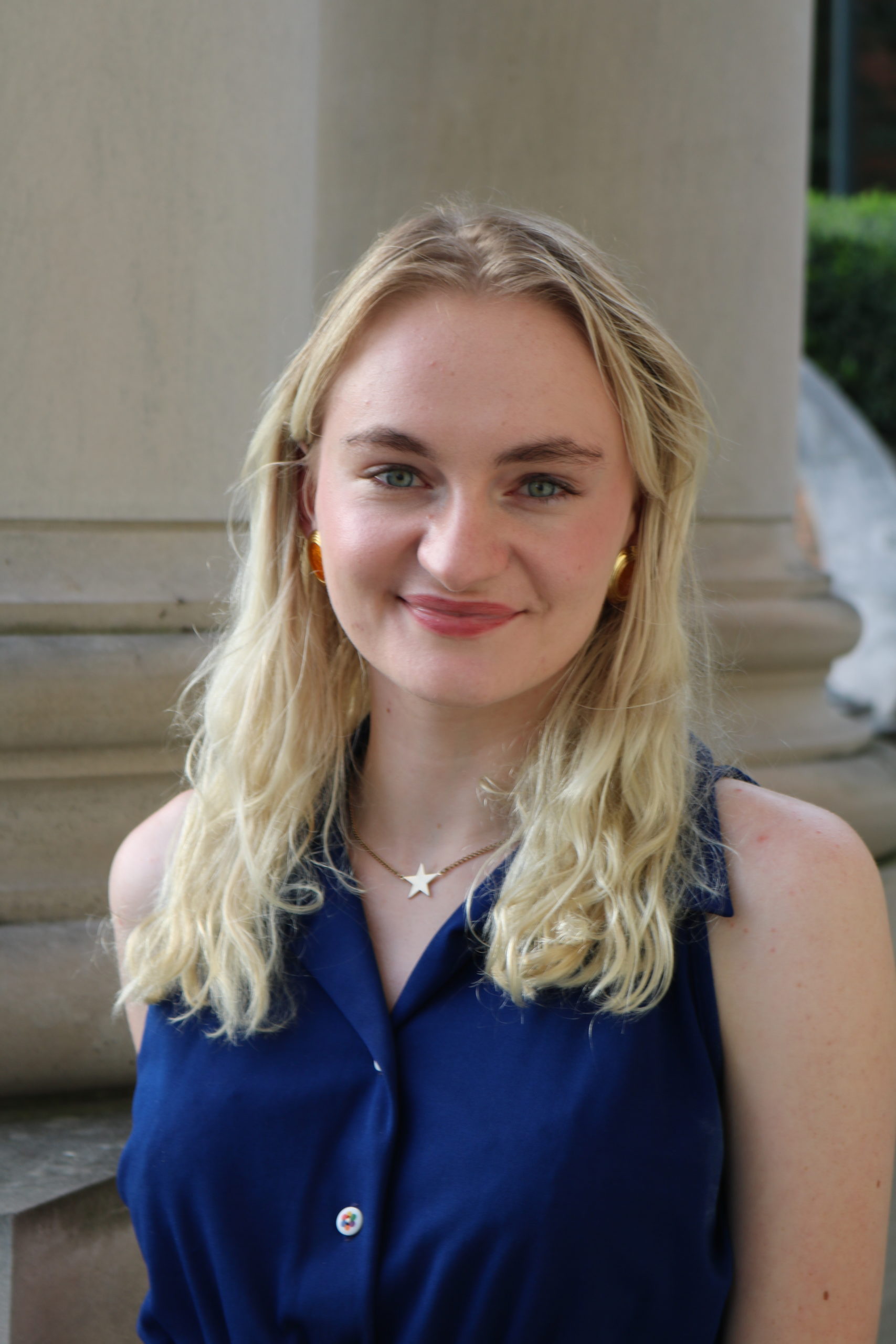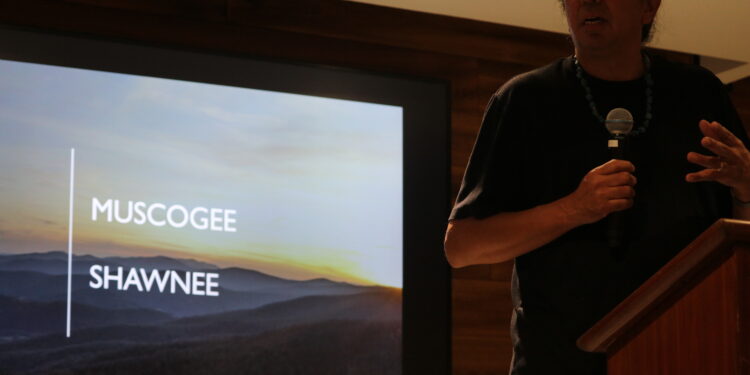“Yá’ át’ ééh. Mark Charles yinishyé. Tsin bikee dine’é nishlí. Dóó tó’aheedlíinii bá shíshchíín. Tsin bikeé dine’é dashicheii. Dóó tódích’ íi’ nii dashinálí.”
On Nov. 13, author Mark Charles began his talk at Samford University the same way he began his book, “Unsettling Truths,” introducing himself according to Diné (Navajo) tradition by offering his name and the names of his four clans. Because Charles’ mother has Dutch heritage, he jokes that his maternal grandparents are “tsin bikee dine’é” which translates to “the Wooden Shoe People.”
Because Navajo culture is matrilinear, his Navajo relatives viewed Charles as Dutch American. And because European culture is patriarchal, his Dutch American relatives viewed him as Navajo. Despite this divide, Charles is not confused about who he is.
“I don’t identify as half. I identify as both.” Charles said. “I am Navajo and I am American of Dutch heritage. I am a dual citizen of the United States and the Navajo nation. And I’m working very hard to bring these two histories together.”
On his father’s side, both of Charles’ Navajo grandparents were boarding school survivors.
“Boarding schools were a way for the government and the church to forcibly assimilate Native peoples to Western European culture,” Charles said.
Boarding schools were a tactic of cultural genocide implemented throughout the United States and Canada through the 18th century to the 1980s to “Kill the Indian, save the child.” During this time, Native children were stolen from their families and forced to attend militaristic boarding schools. There, children were brutally punished for speaking their native languages or practicing their culture. Many children never returned home, and mass graves of indigenous children are still being identified to this day.
“I have many relatives that were boarding school survivors and have spoken at length with boarding school survivors,” Charles said. “The stories of abuse –emotional, physical, relational, sexual- that happened in these schools is gut-wrenching.”
Because of his family’s boarding school history, Charles shared that his grandparents grew up accepting and believing that the Navajo culture was evil and pagan. They gave up their culture and language in order to assimilate to Western European culture and religious practices. Charles said that he was raised as a white evangelical and that his religious background was likely not very different from the average Samford student.
In his junior year of college, Charles began to research and study his Navajo culture and Native American history. After college, he worked in several different positions within the field of ministry before he found a position at a church in Denver, Colorado called the Christian Indian Center. It was here that Charles began to struggle with the question, “What does it mean to be of my Native nation and a follower of Jesus?”
This question brought him back to the Navajo reservation to live off the grid and try to reconnect with Navajo culture. During this time, Charles felt isolated and marginalized and began to understand the historical trauma of his people in a new light.
For Charles, it feels like his Native community is like an old grandmother with a very large and beautiful house. Years ago, someone came in and locked the family in the bedroom. Now, the house is full of people having a party, eating the family’s food and sitting on their furniture. They eventually came upstairs and unlocked the door to the bedroom, but it’s been years. The family is tired and old and sick, so they cannot or will not come out. But no one at the party ever comes upstairs, seeks out the grandmother in the bedroom, sits on the edge of the bed, takes the grandmother’s hand and simply says “Thank you for letting us be in your house.”
Charles believes that a “thank you” requires a paradigm shift in the common narrative of American history. Americans are not discoverers that carried the gospel into unclaimed lands, but rather guests in someone else’s house.
“I want this nation to understand in some very real and practical ways that you are guests in someone else’s house.” Charles said. “And I want Native people in some very real and practical ways to understand that we are the host people of this land, and we have to step into the role of hosts.”

Editor-in-Chief




